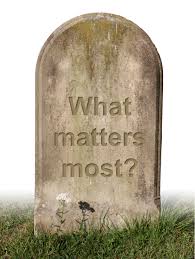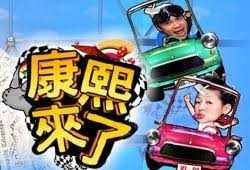周二聚會點 丹提咖啡 寶慶店 晚上7:00~9:30台北市延平南路107號
(西門捷運站3號出口 往前走30公尺 向左看到全家便利商店巷進入 / 在中山堂對面)
連絡電話: 0976217450 Billy
100% 歡迎新朋友 也歡迎您帶朋友來 完全免費 英文同好 學習平台
不用報名 請直接到現場 聚會點請參看 說吧 網頁
周六聚會 歡迎來開講 新聚會地點
板橋區光武街48 巷13號 新埔捷運5號出口 7: 00PM---9:00PM
朋友們 每周一 說吧!英文讀書會 在桃園有英文練習聚會 地址: 桃園中正路50號 麥當勞 時間:700pm---9:00pm 歡迎您來參加
好朋友,請多支持週六聚會 有您支持 這個英文口語練習平台 才有機會成長
***2/8 年終聚餐party 歡迎您來同樂 詳情網頁首頁 尾牙趴資訊 或加入說吧line 群組
感謝 Sherry 承辦

如何衡量人生
How
will you measure your life? (amorebeautifulquestion)
A business guru raises interesting
questions about work, family, and faith
What happens when one of the business
world’s top thinkers applies lessons of business innovation to the subject of
how to live a better life? You end up with a book that’s not your typical
self-help book.
A couple of years back, Clayton
Christensen—well-known professor at Harvard Business School, author of
influential business books, and a leading authority on “disruptive innovation”
in companies—went through a disruptive change in his own life. A
life-threatening bout with cancer inspired deep reflection and eventually
resulted in the 2012 book How to Measure Your Life (co-authored with James
Allworth and Karen Dillon). I just finished the book and would recommend it to
anyone looking for a refreshing, hard-headed perspective on how to develop
strategies for improving your work life and home life. But the real reason I’m
writing about the book here is that it’s chock-full of deep, provocative
questions.
Let’s start with one of the great business
questions in the book—because even though this isn’t a business book, per se,
Christensen offers up some very savvy questions that business leaders should be
asking. Case in point: “If we didn’t have an existing business, how could we
best build a new one?” Christensen posits this as a question that every large,
established company should be asking itself in order to overcome the natural
bias toward perpetuating what they’re already good at and leveraging existing
assets. To think like a bold innovator, you almost have to pretend your company
doesn’t exist—so that you can ask the kind of questions a smart entrepreneur in
your business category would be apt to ask.
In terms of choosing the right job or
career path, Christensen urges us to ask some fundamental questions that tend
to get overshadowed by issues of salary, job titles, etc. Those superficial
perks will only go so far toward job satisfaction, while the more important
questions are: Is this work meaningful to me? Is this job going to give me a
chance to develop? Am I going to learn new things?
When it comes to life beyond work,
Christensen tackles some very big questions including,
How can I be sure I live a life of
integrity? How can I best prepare my kids for what lies ahead? How can I figure
out what “job” my spouse really needs me to do in order to make his/her life
better?
These are excellent questions, but what’s
even better is that Christensen offers some tactical and practical tips on how
to approach these big, difficult issues. Which is not to say he proffers easy
answers. What he tries to do, instead, is provide a framework that can help you
begin to grapple with some of these questions and gradually come up with your
own answers.
Questions:
How will you measure your life?
Is your work meaningful to you?
What's more important, money or job
satisfaction?
Who has inspired you in your life and why?
Are you going to learn new things?
How to make your life better/ a better
person?
How to choose the right career?
Are you a book reader? Share good books you
read these days?

脫口秀/康熙來了
Talk Shows Wikipedia
A talk show or chat show (as it is known in the UK) is a television programming or radio programming genre in which one person (or group of people) discusses various topics put forth by a talk show host.
Usually, guests consist of a group of people who are learned or who have great experience in relation to whatever issue is being discussed on the show for that episode. Other times, a single guest discusses their work or area of expertise with a host or co-hosts. A call-in show takes live phone calls from callers listening at home, in their cars, etc. Sometimes, guests are already seated but are often introduced and enter from backstage. Gay Byrne, Steve Allen, Jack Paar, Johnny Carson, Dick Cavett, Ed Sullivan, Oprah Winfrey, Ellen Degeneres, Rush Limbaugh, and Mosunmola Abudu have hosted notable talk shows; in many cases, the shows have made their hosts famous.
Kangxi Lai Le康熙來了
Kangsi Coming (Chinese: 康熙來了; pinyin: Kāngxī Lái Le; literally: "KangXi Arrives" or "Here Comes KangXi") is a Taiwanese variety-comedy talk show hosted by variety show veterans Dee Hsu (徐熙娣 a.k.a. Xiao S) and Kevin Tsai (蔡康永). In most episodes, the hosts interview a panel of celebrities in various and controversial topics while employing their signature comedic bantering. It is broadcast in Hong Kong on ATV Home under the name of Variety Show of Mr Con and Ms Csi.
Although it is broadcast in Taiwan, the show is very successful and popular among Chinese speaking audiences across the world who watch uploaded re-runs over the internet or through bootleg DVDs. The show has been mentioned in other Taiwanese variety and talk shows, mainly from presenters who appeared on the show. Since its debut in 2004, it has been one of the most successful talk show in Taiwan and in Mandarin speaking countries across Asia.
Unlike most Chinese-speaking talk shows, the format of KangSi is fast-paced, humorous and fully self-aware (see Have I Got News For You) despite the topics that are occasionally controversial. Most episodes feature a group of entertainers and politicians as guest stars engaging into discussions ranging from their career to gossip and current events.
Questions:
What do think about TV talk shows/ talk show hosts/ commetators?
What do think about TV talk shows kanji lay le康熙來了?
Do you like the talking topics of talk shows?
What do think about the host’s interview a panel of celebrities in various and controversial topics?
What made those TV hosts/ commentators famous?
Do you like Taiwanese variety and talk shows?Why people like taking gossip?
What kinds of shows do you like to watch on TV?
What do you think talk shows engaging into discussions ranging from their career to gossip and current events?
「名嘴現象」
2015-01-10 聯合晚報 午後熱評
台灣電視圈近廿年興起「名嘴現象」後,範圍橫跨各領域。不過在政治上,自從各政論節目立場越來越鮮明,名嘴們戰到近乎翻臉的戲劇化場面,幾不復見;因此,昨天羅智強和周玉蔻為了誰是頂新門神,在電視上舌戰二小時,讓好事者多了餘興。不過,這樣的情況並非偶然。
電視台為了搶收視率,來賓發言必須「有料」。有料沒料不在真假,但要辛辣。因此,想當個領通告費維生的名嘴,條件一是可顛倒黑白的三寸不爛之舌,條件二是貌似金剛不壞的背景,條件三是比城牆還厚的臉皮。這三個條件捨其一,都無法成就名嘴事業。
名嘴們很清楚,一旦無料可爆、談話內容沒「哏」,下場就是沒有通告、收入頓減。過去曾有名嘴因接不到通告陷入困頓,竟自編自導綁架案而鋃鐺入獄。雖說亂爆料的下場,被告得傾家蕩產再跟當事人認錯求和者有之,被潑糞威脅者有之。但不需專業,動動口就有錢賺,畢竟仍充滿吸引力。自知滿口胡言,還是得瞎掰下去。由此觀之,便知「條件三」對名嘴「永續經營」的重要性。
嚴格說來,羅智強離開總統府後,只能算個「準名嘴」或「前名嘴」。前一次嘗試,因為太過保守,不符「條件三」而節目被提前腰斬。此次公開與周玉蔻對上,誠然是為了「自清」,當然也不無重新尋找舞台的用意。周玉蔻是名嘴界的沙場老將,但從近來諸多表現看來,也頗有「招式用老」的趨勢。兩人立場雖針鋒相對,需求卻一拍即合,才能上演大戰。
但不管怎麼說,對觀眾或正經的媒體而言,都是「對名嘴認真就輸了」。畢竟,演戲的是瘋子,看戲的是傻子。要當傻子,看戲的時候當看戲就好,要是太入戲,跟著瘋癲抓狂,就真是傻斃了。









0 意見:
張貼留言